New Year’s Resolutions are often made with the best of intentions and promptly dropped. Statistics show that about two weeks into the year one-third of those who make resolutions are close to quitting. By March, 85 percent will have thrown in the towel!
What better way to keep that resolution to volunteer than to reassess exactly how volunteering will benefit you? You may be surprised at some of the various benefits of volunteerism! 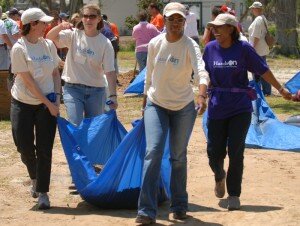
- Meet new people Volunteering brings together a diverse range of people from all backgrounds and walks of life. It puts you in contact with folks with similar interests that you may not have encountered otherwise! Volunteer projects are a great way to make new friends or simply meet people with different life experiences than your own. You can not only develop lifelong personal and professional relationships, you can also hear about job openings, gather insider employment information and develop great references.
-
Network and gain connections In these uncertain economic times, the opportunity to network is nothing to scoff at. Volunteer projects offer that chance, and often in an arena related to your current skills. Networking is an exciting benefit of volunteering and you can never tell who you will meet or what new information you will learn and what impact this could have on your life.
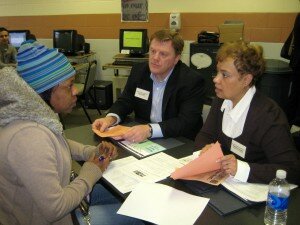
- Looks good on your resume & college application Volunteering demonstrates workplace, management, and leadership skills that can be documented in a resume. Work experience is work experience, with or without a paycheck. If you are developing new skills or thinking of pursuing a new career, volunteer work can give you valuable, practical experience. Career counselors and headhunters encourage job seekers to document pertinent volunteer experiences. Volunteer work support skills, character and balance in life. 90% of executives in a national survey of Fortune 500 companies believed volunteering built teamwork and provided valuable professional development opportunities.
- Learn new skills Volunteering is the perfect vehicle to discover something you are really good at and develop a new skill. It is never too late to learn new skills and there is no reason why you should stop adding to your knowledge just because you are in employment or have finished education. Planning and implementing a major fundraising event can develop goal setting, planning and budgeting skills. Supervising and training other volunteers helps to develop supervisory and training skills. Volunteering is the perfect way to discover something that you’re good at while contributing to the benefit of your community.
-
Gain confidence and a sense of achievement Volunteers are motivated in their work because they are able to work for a cause or passion that they truly believe in. When one is able to work for a cause close to their heart, they feel a sense of achievement at seeing the effect that their good work has on others. Volunteering around a personal interest or hobby can be fun, relaxing and energizing. That energy and sense of fulfillment can carry over to other aspects of your life and sometimes helps to relieve work tensions and foster new perspectives for old situations.
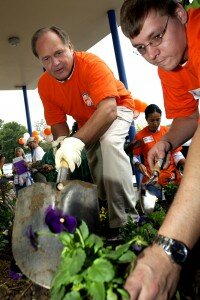
- Better your health Those who participate in volunteer activities report higher levels of life satisfaction, sense of control over life, and feeling physical and emotionally healthier. A report featured in The International Journal of Person Centered Medicine found that people who give back to others lead more happy and healthy lives than those who do not volunteer. “People in general are happier and healthier, and may even live a little longer, when they’re contributing” to their community or an organization they are passionate about, said study author Stephen G. Post, PhD. A majority of study participants said their volunteer activities enrich their sense of purpose in life and lower stress levels. The survey also showed that those who give back are less likely to feel hopeless and lonely than people who do not volunteer.
- Feel good by doing good! Volunteering is about giving your time, energy and skills freely. As a volunteer you have made a decision to help on your own accord, free from pressure to act from others. Volunteers predominantly express a sense of achievement and motivation, and this is ultimately generated from your desire and enthusiasm to help. It may be true that no one person can solve all the world’s problems, but what you can do is make that little corner of the world where you live just that little bit better!
- Establish yourself in your community We sometimes take for granted the community that we live in. It is easy to become disconnected with the issues that face your community as a whole. Why not bridge that expanding gap through volunteering? Volunteering is ultimately about helping others and having an impact on people’s wellbeing. What better way is there to connect with your community and give a little back? As a volunteer, you certainly return to society some of the benefits that society gives you.
- Find new hobbies and interests Finding new interests and hobbies through volunteering can be fun, relaxing and energizing. Sometimes a volunteer experience can lead you to something you never even thought about or help you discover a hobby or interest you were unaware of. You can strengthen your personal and professional mission and vision by exploring opportunities and expanding your horizons. Perhaps you’ll discover a previously unknown passion for education or making blankets for homeless shelters!
What are the benefits you’ve experienced through volunteering? Have you succeeded in keeping your resolutions? Let us know in the comments below!
Related Articles

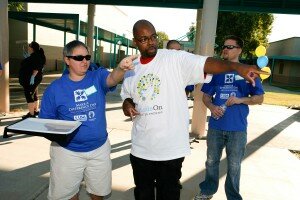 man out with their successes and their struggles.
man out with their successes and their struggles.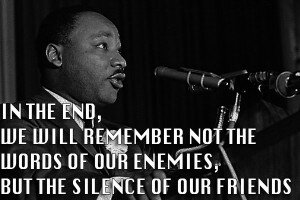
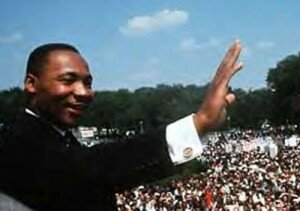 community?
community?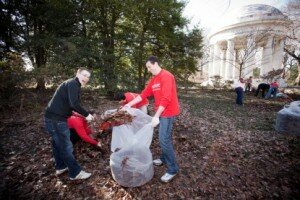 of getting the word out and who needs to be contacted.
of getting the word out and who needs to be contacted.
 During his lifetime Dr. King worked tirelessly toward a dream of equality. He believed in a nation of freedom and justice for all, and encouraged all citizens to live up to the purpose and potential of America. The Martin Luther King, Jr. Day of Service is a way to transform Dr. King’s life and teachings into community service that helps solve problems. MLK Day programs meet tangible needs, such as revitalizing schools and feeding the homeless; but also build a sense of community and mutual responsibility by spurring conversation. On this day, Americans of every age and background celebrate Dr. King through volunteering and unite to strengthen communities, empower individuals, and bridge barriers.
During his lifetime Dr. King worked tirelessly toward a dream of equality. He believed in a nation of freedom and justice for all, and encouraged all citizens to live up to the purpose and potential of America. The Martin Luther King, Jr. Day of Service is a way to transform Dr. King’s life and teachings into community service that helps solve problems. MLK Day programs meet tangible needs, such as revitalizing schools and feeding the homeless; but also build a sense of community and mutual responsibility by spurring conversation. On this day, Americans of every age and background celebrate Dr. King through volunteering and unite to strengthen communities, empower individuals, and bridge barriers.

 more?
more?
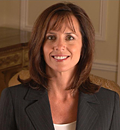
 You know that publicity is important for spreading your organizations message to the world, but how exactly do you do it? The most important step in your communication plan should be start early, before the demands from your organization start pulling you in too many different directions. Here is a to-do-list that can make contacting the media about your projects less daunting:
You know that publicity is important for spreading your organizations message to the world, but how exactly do you do it? The most important step in your communication plan should be start early, before the demands from your organization start pulling you in too many different directions. Here is a to-do-list that can make contacting the media about your projects less daunting: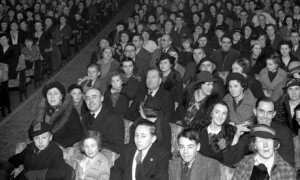 Identify your audience and set your organization’s priorities. Brainstorm a list of people that can help you accomplish your organization’s goals. Spend most of your time with the people who can help spread your organization’s message and diversify your audience more.
Identify your audience and set your organization’s priorities. Brainstorm a list of people that can help you accomplish your organization’s goals. Spend most of your time with the people who can help spread your organization’s message and diversify your audience more.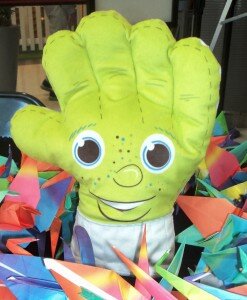 Today’s blog post comes from Lenny Lend-A-Hand,
Today’s blog post comes from Lenny Lend-A-Hand,  Personally, I’m looking forward to putting an artistic spin on community education by painting storm drains with the message “PLEASE DON’T POLLUTE! Drains to the Mississippi River!” With the longest river in the nation rushing right between our Twin Cities, it’s our civic duty to engage, inform, and remind patrons to do their part in improving local water resources. (Plus with clean water, I’ll be even more excited to take a summertime dip in the good ole Mississippi!)
Personally, I’m looking forward to putting an artistic spin on community education by painting storm drains with the message “PLEASE DON’T POLLUTE! Drains to the Mississippi River!” With the longest river in the nation rushing right between our Twin Cities, it’s our civic duty to engage, inform, and remind patrons to do their part in improving local water resources. (Plus with clean water, I’ll be even more excited to take a summertime dip in the good ole Mississippi!) Today’s post comes from Arthur Coddington, Director of Online Programs,
Today’s post comes from Arthur Coddington, Director of Online Programs, 
